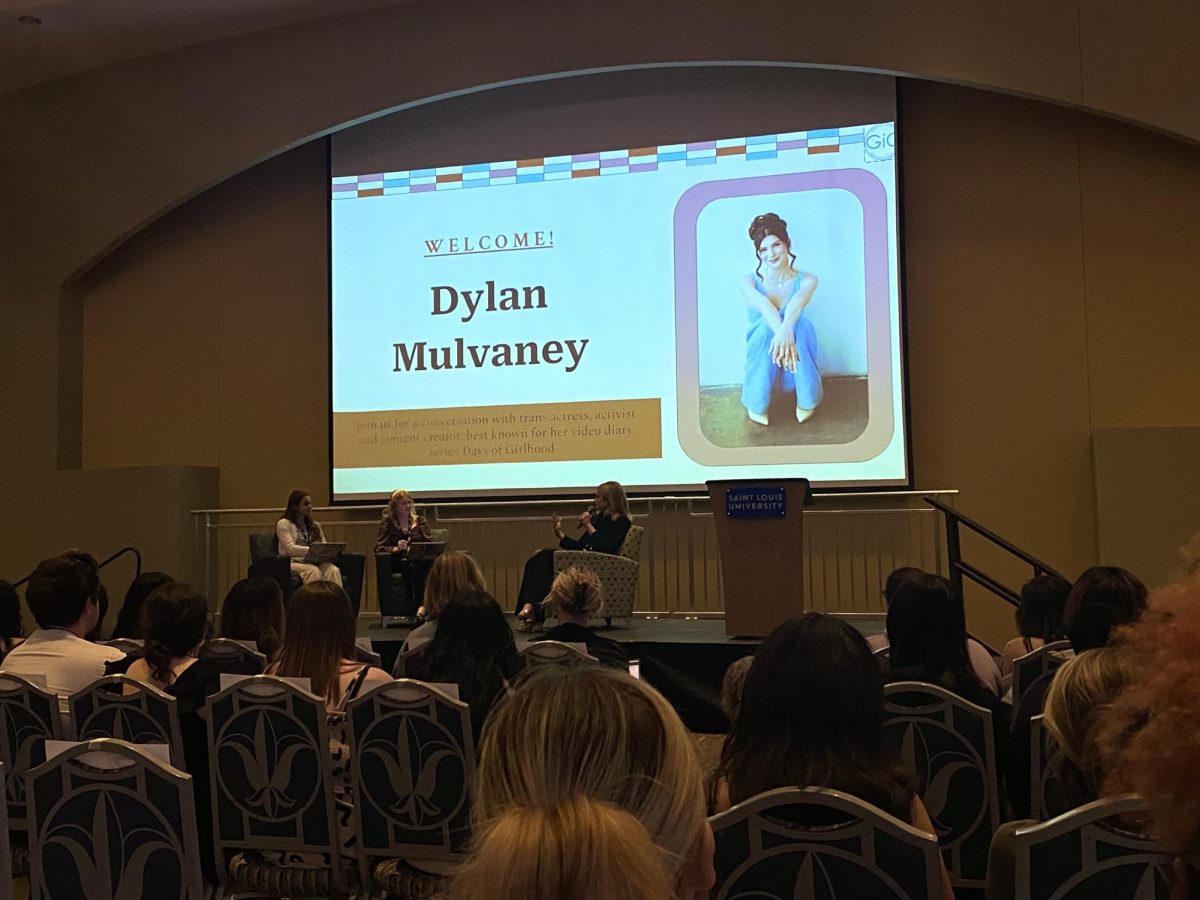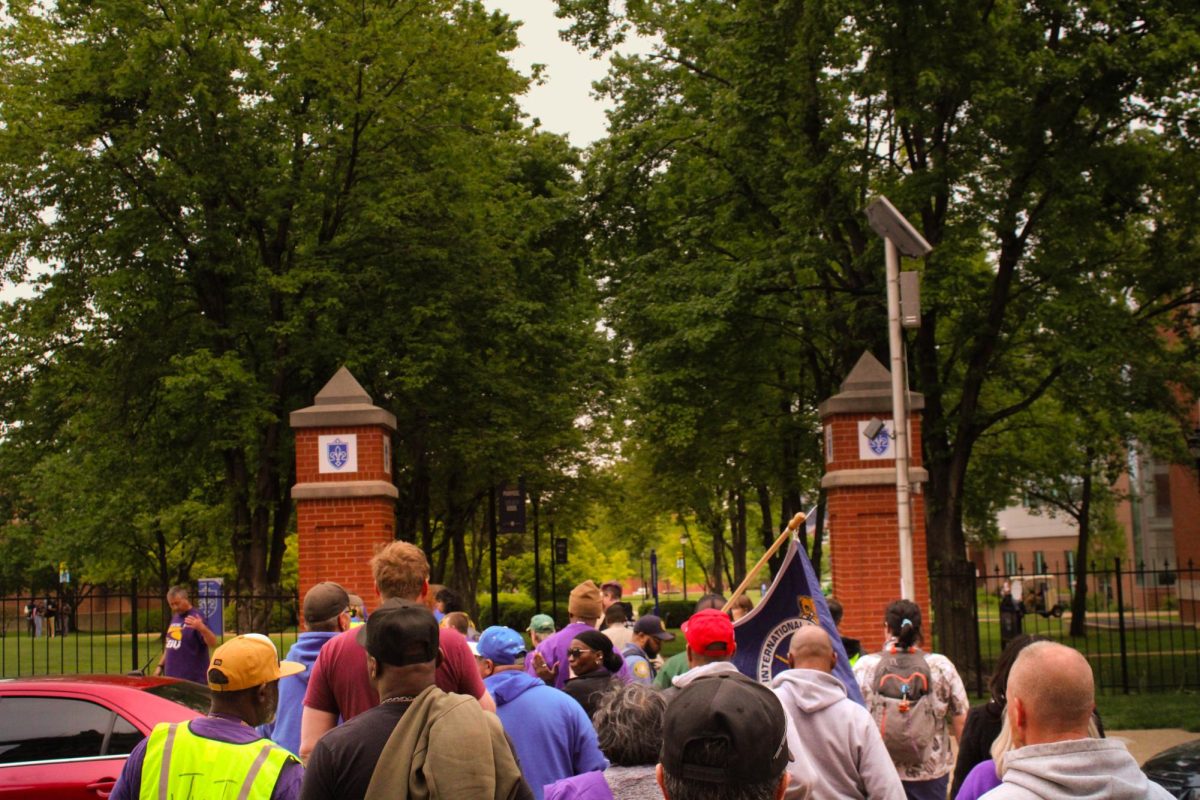Tuesday night, President George W. Bush began his annual State
of the Union Address by telling Congress, “Our greatest
responsibility is the active defense of the American people.” After
reminding Americans that the war on terrorism has not yet ended, he
spent nearly half of his hour-long speech talking about his foreign
policy before addressing domestic issues.
Calling for Congress to “defend the sanctity of marriage,” Bush
took his strongest stand against gay marriage, stating, “If judges
insist on forcing their arbitrary will upon the people, the only
alternative left to the people would be the constitutional
process.”
He told the prime-time audience of an estimated 60 million
viewers that he would work to make permanent over the next decade
the billions of dollars in tax cuts he passed in the first year of
his administration.
He also recalled education and healthcare legislation he had
helped to pass through Congress, and reiterated his
recently-proposed immigration policy of granting temporary worker
status to immigrants already living in the United States.
A year after he was preparing the nation for an invasion of
Saddam Hussein’s Iraq, Bush defended his motives for war, saying,
“Had we failed to act, the dictator’s weapons of mass destruction
programs would continue to this day. Had we failed to act, Security
Council resolutions on Iraq would have been revealed as empty
threats, weakening the United Nations and encouraging defiance by
dictators around the world. Iraq’s torture chambers would still be
filled with victims–terrified and innocent.”
Bush devoted only one other sentence, carefully worded, to the
weapons of mass destruction that he alleged Saddam possessed before
the invasion of Iraq, saying that inspectors had identified “dozens
of weapons of mass destruction-related program activities and
significant amounts of equipment that Iraq concealed from the
United Nations.”
During the opening remarks of the address, which was scheduled a
day after the Democratic caucuses in Iowa and a week before the
primary in New Hampshire, the president alluded to the upcoming
November election, saying, “We can go forward with confidence and
resolve–or we can turn back to the dangerous illusion that
terrorists are not plotting and (that) outlaw regimes are no threat
to us.”
He added, “We can press on with economic growth and reforms in
education and Medicare–or we can turn back to the old policies and
old divisions.”
Kenneth Warren, Ph.D., a public opinion pollster and associate
professor of political science, observed that, “In an election
year, the State of the Union address is also a campaign
speech.”
“I think [Bush’s] general theme was that the state of the union
was confident and strong–that’s what he’s trying to convince the
people,” Warren added, noting that Americans may be less convinced
this year than they were last year.
According to an overnight CNN/USA Today/Gallup poll, 76 percent
of Americans found the president’s address to be “very” or
“somewhat positive”–down from last year’s 84 percent.
“Although 70 percent may seem high, it’s well below last year,”
Warren said. “I think the speech was a lot more solemn; it was not
as upbeat as last year’s. He delivered it confidently, but not with
the verve that State of the Union addresses are usually
delivered.”
Most media observers noted the difference between the first and
second half of the president’s address, which may reflect the
disparity between Bush’s approval on foreign and domestic
matters–of which the chief issue is the economy.
A CBS News poll showed that 60 percent of those who watched the
address approved of the president’s proposals, and 62 percent of
those same people said they did not think the government would be
able to afford those programs.
Warren added that Bush’s speech did not spark an expected jump
in approval. “You always expect the president to get a bounce in
the polls, but [this year’s] bounce was considerably less, about
half of what it was last year.”
Even though 60 percent of those polled by CBS News who said they
watched the speech said they shared Bush’s priorities, 54 percent
of those who watched thought the president was handling the economy
well and 42 percent approved of his immigration policy, as well as
his recently- passed healthcare legislation.
Fifty-one percent of those who watched thought the cost of war
in Iraq was worthwhile, where 58 percent approved of making Bush’s
tax cuts permanent over the next decade, according to the CBS News
poll.
The president did not mention what may become one of the more
costly items on his administration’s agenda, his announcement last
week to send an American to the moon by 2020 for the purpose of
establishing a launch pad for a mission to Mars.
“I think his speech showed, ironically, in a way, where his
strengths and weaknesses will be in his upcoming campaign,” Warren
said.






